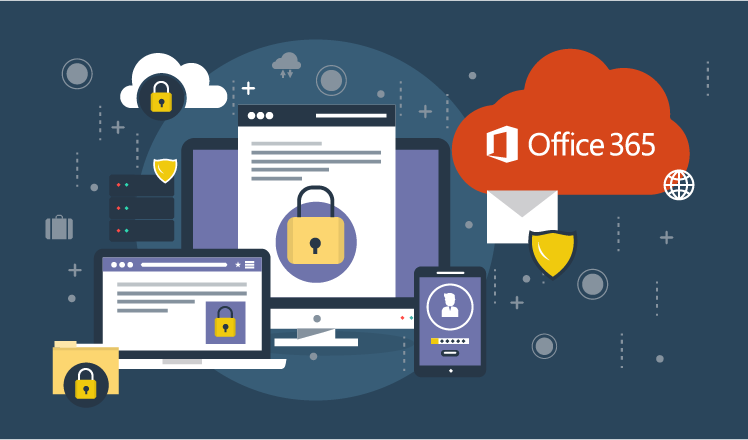In today’s digital world, businesses are relying heavily on technology to streamline operations, enhance productivity, and improve collaboration. One of the most popular tools for businesses is Microsoft Office 365, which offers a wide range of applications to facilitate day-to-day operations. However, with the increased use of cloud-based services comes a higher risk of security breaches and cyberattacks. Therefore, it is crucial to implement robust security measures to protect your business and ensure the confidentiality of sensitive data. In this article, we will discuss various security measures that you can implement to safeguard your business when using Office 365.
Enable Multi-Factor Authentication
One of the most basic yet effective security measures that you can implement in your Office 365 account is Multi-Factor Authentication (MFA). MFA adds an extra layer of security by requiring users to provide two forms of identification before accessing their account. Typically, this involves entering a password and a unique code sent to their mobile device. MFA significantly reduces the risk of unauthorized access to your account, even if someone gets hold of your password.
Use a Strong Password Policy
Another essential security measure is to ensure that all users in your organization follow a strong password policy. This policy should include guidelines on how to create a strong password, such as using a mix of uppercase and lowercase letters, numbers, and special characters. Additionally, you should enforce password expiration and prevent the use of common passwords, such as “password123” or “123456.”
Implement Data Loss Prevention Policies
Data Loss Prevention (DLP) policies are a crucial security measure that can help prevent sensitive data from being shared or leaked accidentally. DLP policies allow you to create rules that detect and prevent the sharing of sensitive information, such as credit card numbers or social security numbers. You can configure these policies to send notifications or even block the sharing of such information.
Protect Against Malware and Phishing Attacks
Malware and phishing attacks are some of the most common security threats that businesses face. Malware can infect your computer and steal sensitive data, while phishing attacks can trick users into sharing their login credentials or other sensitive information. To protect against these threats, you should implement antivirus software, firewalls, and email filters. Additionally, you should educate your employees on how to recognize and avoid suspicious emails and websites.
Monitor and Audit Activity
Monitoring and auditing activity is a crucial security measure that can help you detect and prevent unauthorized access to your data. Office 365 provides various auditing features that allow you to track user activity, such as file access, login attempts, and mailbox access. You can also set up alerts to notify you of suspicious activity, such as multiple failed login attempts.
Secure Mobile Devices
With the rise of mobile devices, it is crucial to implement security measures that protect your business from mobile threats. If your employees use mobile devices to access Office 365, you should ensure that they use strong passwords and enable MFA. Additionally, you can use Mobile Device Management (MDM) policies to enforce security settings, such as device encryption and screen lock.
Train Your Employees
Finally, one of the most effective security measures you can implement is to train your employees on security best practices. Educate them on how to create strong passwords, recognize and avoid phishing emails, and use MFA. Additionally, provide regular security awareness training to keep your employees up-to-date on the latest threats and how to protect against them.
Conclusion
In conclusion, Office 365 is a powerful tool that can help businesses streamline operations and improve productivity. However, it is crucial to implement robust security measures to protect your business from cyber threats. By following the security measures outlined in this guide, you can safeguard your Office 365 account and ensure the confidentiality of sensitive data. Remember to enable MFA, use a strong password policy, implement DLP policies, protect against malware and phishing attacks, monitor and audit activity, secure mobile devices, and train your employees on security best practices. By doing so, you can enjoy the benefits of Office 365 while keeping your business safe from cyber threats.





